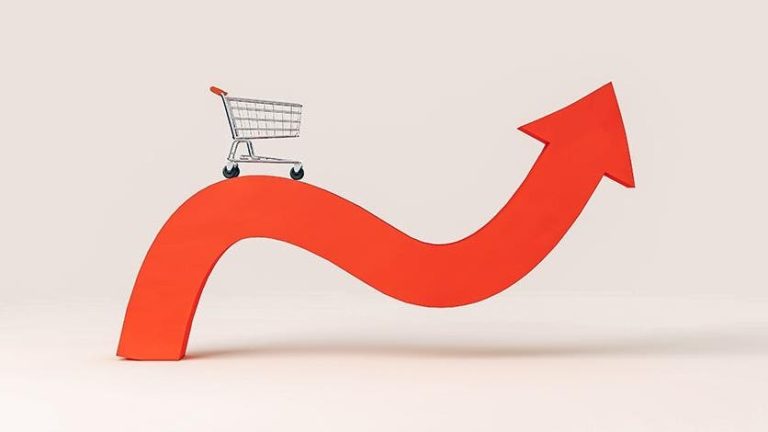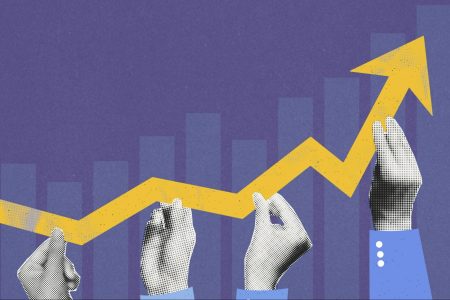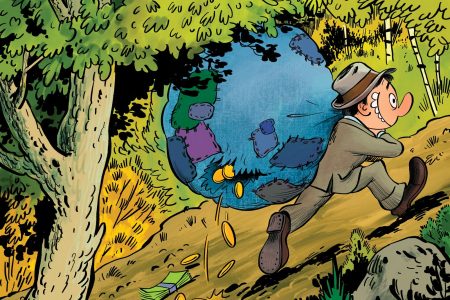As an armchair social scientist, my view of the health of the U.S. economy is partly based on what I can see through my windshield—the interactions in my daily life. My consumer research career gives me some additional insight. And then there’s what catches my eye in the blizzard of headlines. Lately, those headlines seem out of sync with my experience and each other.
A TD Bank survey released last month found that 80% of consumers have changed their spending habits due to inflation. Yet inflation has fallen dramatically, from 9.1% last July to 3.2% this July, a rate above the long-term average but not by an alarming margin. Egg prices, for example, which shot up to nearly $5 a dozen, are back down to about where they were a decade ago.
Yet according to a recent Reuters report, the growing consensus for the holiday season: “Gloomy U.S. Retail Outlook.” That item was dated August 23. Then, on August 31, the same news agency reported, “US consumer spending accelerates.” Meanwhile, at Dollar General, the CEO said this Spring that many of the variety store chain’s customers have to buy their groceries with credit cards and “borrow.”
Jobs remain plentiful, but you wouldn’t know it from some recent headlines. According to CNBC, the latest Bureau of Labor Statistics (BLS) report showed the unemployment rate rising “unexpectedly” to 3.8%. Over at CNN, on the same day, “The US economy continued to add jobs at a robust pace.”
Look behind the headlines, and you will discover buried in the BLS report that unemployment has been unchanged since a year ago, as has the number of unemployed persons. In a separate report, the BLS reports that there are more than 3 million more people employed now than there were a year ago.
Consumer spending may be holding steady, but shoppers are focused on price and have been cutting back on non-essentials. When indulging, the expenditure this year has trended toward travel and entertainment. Outside of groceries and essentials, retailers are having a hard time wooing shoppers into apparel and other aisles full of discretionary, higher-profit merchandise.
As a result, competition among the marquee brands has become fierce. The Thanksgiving “Black Friday” sale is now essentially an anachronism. Instead, retailers have been running aggressive offseason promotions with discounts at some stores as high as 75% on selected items. This summer, Amazon ran a Prime Days sale; Target’s offering was Circle Week; Best Buy’s Black Friday in July sale; and a Walmart+ Week. The number of SKUs (individual items) on sale in the second quarter was up 21% from a year earlier, according to a BMO Capital markets report.
Even the auto industry is choking on excess supply. New car prices soared beginning in 2021 to a recent high of nearly $50,000. According to Kelley Blue Book, a research firm that tracks auto markets, this year’s prices are weakening, partly because so many consumers can’t afford new cars and because of a global glut in production. Kelley expects auto prices will be coming down this Fall.
If consumers are sticking to the basics and every major mass merchandiser feels the need for continuous promotions to unload excess inventory, you could make a case for the consumer economy being in a recession. Especially when considering that prices for major household expenses like housing and cars are still out of reach for many consumers and that consumer credit card debt has rebounded to pre-pandemic levels.
But then there’s this somewhat jarring headline: “Global luxury market to grow by up to 12% in 2023.” That’s on top of a record year for 2022, according to a forecast by management consultant Bain.
New cars may be unaffordable for many, but Kelley Blue Book recently reported that Americans “continue to buy more luxury cars than the historical norm.” Kelley said the luxury share of the U.S. market was 19.3% in July, “near a record high.”
Drive down the streets of many American towns and cities, and through your windshield, you may be struck, as I have been, by how many shiny, new, behemoth luxury SUVs are parked at the curbs. The retail prices range between $75,000 and $150,000 each. Where, I’ve wondered, is all this money coming from?
One of my other through-the-windshield observations occurred on a recent international business flight, one of many I make each year. On one particular leg of my itinerary, I noticed that business class, which cost $5,000 a seat or more, was packed, but there were many open seats in economy. I marveled that there is so much wealth at the top that spending an extra $3,000 or more for a short transatlantic hop is no big deal.
Income disparity is apparent all around us, thanks to the housing bubble. In just two and a half years (beginning with 2020’s second quarter), the median sales price of a home in the US rose more than 50%, primarily driven by higher-income urbanites fleeing the pandemic for the relative safety of the suburbs. Prices finally peaked at the end of last year and have fallen sharply in this year’s first half.
For my constituency, the retail industry, the future has never been murkier or more rife with hazards. For students of financial history, the pattern is starting to resemble what happened in the first few years of this century when a housing price bubble burst and sent the economy into a deep recession.
What would trigger such a catastrophe? It’s probably the same thing that’s triggered them—a “black swan” event like the failure of a major bank or some other economic shock that exposes the bubble we’ve been living in.
As an armchair social scientist, I hesitate to make predictions, but as a consumer behavior student, it feels like we’re sailing through shark-infested waters.
Read the full article here









